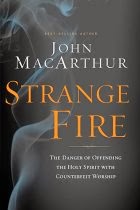John Davenant (London, 20 May 1572 – Salisbury, 20 April 1641) was an English academic and bishop of Salisbury from 1621. He also served as one of the British delegates to the Synod of Dort. (
Wikipedia article)
Davenant seems to have advocated a middle-ground position between Arminianism and strict Calvinism termed by one observer as "hypothetical universalism, a general atonement in the sense of intention as well as sufficiency, a common blessing of the cross, and a conditional salvation. All these views stood in close connection with the theology of the well-meant offer of salvation to all." (Hanko, Prof. Herman C.,
"The History of the Free Offer", Chapter 5)
Davenant's "
Expositio Epistola D. Pauli ad Colossenses, had been delivered in a series of Lectures to the Students at Cambridge, as Lady Margaret's Professor. This, as it is his most valuable work, so was it the first he issued. It was published at Cambridge in 1627, republished in 1630, and went into a third edition in 1639; each edition being in small folio. There is also a quarto edition, printed at Amsterdam in 1646. The character of this book has been happily expressed by a popular writer in the following terms: "For perspicuity of style and accuracy of method; for judgment in discerning and fidelity in representing the Apostle's meaning; for strength of argument in refuting errors, and felicity of invention in deducing practical doctrines, tending both to the establishment of faith, and the cultivation of holiness, it is inferior to no writing of the kind; and richly deserves to be read, to be studied, to be imitated, by our young divines."* We may also subjoin the testimony of an invaluable living writer, who in a letter to the translator, observes, " I know no exposition upon a detached portion of Scripture (with, perhaps, the single exception of Owen on the Hebrews) that will compare with it in all points. Leighton is superior in sweetness, but far inferior in depth, accuracy, and discursiveness."" (John Davenant (2013-01-01). 1 - An Exposition of the Epistle of St. Paul to the Colossians (Kindle Locations 567-576). Hamilton, Adams and co.. Kindle Edition)
Though at times, both because of 19th century English writing and because of the formatting, this book was quite tedious to read, there are some real gems of insight in Davenant's exposition of Colossians 1-2. I especially liked his explanation on Col 2:14-15.
I used the
Google Books edition and then used Amazon's app, Send to Kindle, to convert Google's PDF to Kindle format. That resulted in OCR transcription errors and tended to insert footnotes in odd places in the book. A few times it was best to go to the PDF scan in order to find where the actual text left off and continued.
As would be expected in the early 1600s, there is a fair amount of anti-Catholicism in Davenant's writing. He contrast what he sees as an accurate interpretation of Colossians with the Catholic Church's doctrine.
Davenant does an excellent job of explaining Paul's view on the sufficiency of Christ for salvation and the errors of depending on traditions, works, and human effort to gain God's favour.
If you're willing to wade through the difficulties, this is a good book. Purchasing a printed copy of the book from Amazon would probably make for an easier read. Or, reading the PDF scan on a device and app that faithfully reproduces the scan would also be easier (the Kindle eReader does a poor job of reproducing pure PDFs).
 Unleader: The Surprising Qualities of a Valuable Leader by Jane Overstreet
Unleader: The Surprising Qualities of a Valuable Leader by Jane Overstreet


